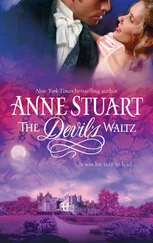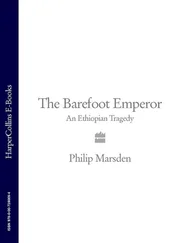Philip Hensher - The Emperor Waltz
Здесь есть возможность читать онлайн «Philip Hensher - The Emperor Waltz» — ознакомительный отрывок электронной книги совершенно бесплатно, а после прочтения отрывка купить полную версию. В некоторых случаях можно слушать аудио, скачать через торрент в формате fb2 и присутствует краткое содержание. Жанр: unrecognised, на английском языке. Описание произведения, (предисловие) а так же отзывы посетителей доступны на портале библиотеки ЛибКат.
- Название:The Emperor Waltz
- Автор:
- Жанр:
- Год:неизвестен
- ISBN:нет данных
- Рейтинг книги:3 / 5. Голосов: 1
-
Избранное:Добавить в избранное
- Отзывы:
-
Ваша оценка:
- 60
- 1
- 2
- 3
- 4
- 5
The Emperor Waltz: краткое содержание, описание и аннотация
Предлагаем к чтению аннотацию, описание, краткое содержание или предисловие (зависит от того, что написал сам автор книги «The Emperor Waltz»). Если вы не нашли необходимую информацию о книге — напишите в комментариях, мы постараемся отыскать её.
The Emperor Waltz — читать онлайн ознакомительный отрывок
Ниже представлен текст книги, разбитый по страницам. Система сохранения места последней прочитанной страницы, позволяет с удобством читать онлайн бесплатно книгу «The Emperor Waltz», без необходимости каждый раз заново искать на чём Вы остановились. Поставьте закладку, и сможете в любой момент перейти на страницу, на которой закончили чтение.
Интервал:
Закладка:
Samuel, Duncan’s father, had kept the builders of Harrow busy, and the property lawyers, too: he meticulously applied for planning permission for every small change and every extension, resubmitting when he was turned down, discussing details every which way with the builder – he would not employ an architect when, as he said, the builder had to build it, and he knew very well what was needed. It was Duncan’s memory of his childhood, to be banished with his sister Domenica to a spare room or other while a part of the house was rendered uninhabitable for months – the dining room with no wall, the kitchen huddled and stripped without cupboards, the builders sitting on the ground smoking where the sun lounge was going to go. There were only the four of them; their parents were in the future going to need less space, not more. In the end, he concluded that it was his father’s hobby, like the law suit his father brought with gusto against a builder when one extension, to the dining room, proved to let in rain in torrents.
In the streets of Harrow, people pointed out the house as a disaster, as something extended and pulled beyond what anything could reasonably take. They pointed it out now. Upstairs, the curtains were drawn in the master bedroom, where Samuel lay dying. He was sleeping at the moment. A nurse had sat with him overnight, now that he was in no position to argue with the expense, or with the fact that she was Trinidadian. She was speaking in low tones to the day nurse, who had just arrived in her little beige Morris Marina and was taking off her thin summer coat in the hall.
In the summer terrace, the glass-covered extension at the back of the house, three women sat. They were Duncan’s aunts, his father’s three sisters. They had been there in pairs, or all three of them, for days. They were Aunt Rachel, Aunt Ruth and Aunt Rebecca. A grandfather had named them after Biblical figures, not foreseeing that, for ever afterwards in north London, people would ask them and their brother Samuel which synagogue they went to, creating a hostility they saw no reason to diminish. Samuel’s children were called Duncan and Domenica; the children of Ruth and Rebecca were called Amanda, Raymond, Richard and Caroline. Normal names, Ruth would say, meaning what she meant by that. Rachel had no children, but if she had, she would have named them away from the scriptures too; she had a black parrot, however, named Ezekiah. Ruth and Rachel were already in black, as if preparing for the day of their brother’s death; Rebecca, a plump woman, was wearing a practical tweed, her hat still on. They were talking about their niece and nephew.
‘She’s no use,’ Rachel said. ‘No use at all. I phoned her and she hardly seemed to understand what I was asking of her. I don’t think we’ll see her until the weekend.’
‘Oh, but surely,’ Rebecca said.
‘She simply doesn’t care,’ Ruth said.
‘Possibly,’ Rachel said. ‘I think she’s a little bit simple, sometimes. I don’t think she understands what’s going on. She said to me that she’d wait until her brother got here.’
‘Her brother!’ Rebecca said.
‘I don’t know what she was thinking of,’ Rachel said. ‘Waiting for her brother.’
‘She loves her brother,’ Ruth said. ‘At least, everyone always said so. Even when she was a little girl, she would follow him round, holding something to give him, a toy or something of that nature. Her little brother …’
‘Oh, what people do, what people justify, in the name of love,’ Rebecca said. ‘“I love him.” Fancy. So she’s waiting until her brother gets here, is she?’
‘She’ll be waiting for a good long time, then,’ Rachel said. ‘Is it me or is it hot in here?’
‘No,’ Ruth said. ‘It is hot, it isn’t you. The brother, too – at least Samuel saw some sense over that one. Giving everything up and going to be a hippie in Italy. There’s no sign of that one, is there?’
‘I am so glad Samuel listened to what we suggested,’ Rebecca said. ‘The estate couldn’t just go to someone like that. He’d just – yes, thank you so much, Nurse Macdowell, thank you.’
‘Are you coming tonight, Nurse Macdowell?’ Rachel asked, but Nurse Macdowell was not. ‘Do have a cup of coffee – you know where the kitchen is. No?’
‘Such a Scottish name, Macdowell,’ Ruth said when the nurse was gone. ‘You wonder where they acquire them from. Coloured people.’
‘The owners of plantations,’ Rebecca said. ‘That would have been the Scottish one, and they pass their name on to the slaves, passed, rather, I should say. They would have thought it quite an honour to be named after the owner of the plantation, all over the Caribbean.’
Rachel and Ruth exchanged a glance: their big sister Rebecca had always been the swot, held up to the twins, three years behind in school, as a scholastic ideal when in reality she had been willing only to put her own ideas of the truth forward in firm ways. And now she was seventy-four, and stout, and wearing a good tweed with a summer umbrella underneath the chair, because you really never knew, and still putting forward her ideas of the truth in a manner that required no contribution or disagreement.
‘It’ll be a shock to the son,’ Ruth said. ‘He’ll be under the impression that it’s going to be him, him and the sister, who are going to get everything.’
‘This beautiful house,’ Rachel said. ‘They would only sell it and pocket the money. And poor Samuel’s savings and shares, too. Neither of them married, or any sign of it.’
There was a shriek from the end of the room. Rachel had brought her black parrot, Ezekiah, promising he would be no trouble but he liked to have some company around him. The room smelt faintly of bird, and he had a look in his eye, a wizened, assessing, timing look; Ruth and Rebecca went nowhere near him, and he sat on the backs of what chairs he chose, his claws like wrinkled grey tools.
‘The son – he was always a nasty little boy,’ Rebecca said. ‘I never thought much of him. Crying into his mother’s skirts, never wanting to come out and say hello. Scared of everything. Just the same now, I imagine.’
‘I found his address in Italy,’ Rachel said. ‘He had written to Samuel to tell him where he lived. I sent the telegram. More than that I cannot do. You know what he is?’
‘Oh, yes,’ Ruth said. ‘One of them.’
‘One of them?’ Rebecca said. ‘Oh, not a marrying type. How dreadful for Samuel. I expect he will turn up once poor Samuel has died, wanting to spend Samuel’s money on cushions, lipstick and a sex-change operation.’ Rebecca made a gesture; a feminine gesture but not a feminine gesture a woman would make, rather the extension and admiration of her finger-ends, which were a gardener’s hands, trimmed and painted with red polish. She made a curdling moue , a pout; she meant not to be a woman or to suggest one, but to show what Duncan might be like. ‘Lop it off, Doctor,’ she said.
‘But there isn’t going to be as much money as he thought,’ Rachel said, smiling sadly and shaking her head. ‘Samuel handled that all very well. I am so glad we explained everything to him so well while he was still not in too much pain.’
‘It was such a good idea, getting one of those easy forms from Smith’s,’ Ruth said. ‘It saved all the bother and expense of going to the solicitor. That was a very good idea of yours, Rachel.’
‘But there is a virtue in having a family solicitor for years,’ Rebecca said. ‘I always said so. And Mr Brooke is such a friend.’
‘Samuel saw the point, didn’t he?’ Ruth said. ‘We didn’t talk him into anything, nobody would be able to say that. I am so glad that Rachel got the will, and did everything, and got it witnessed, and took it to Mr Brooke for safekeeping. That was very good of Rachel.’
Читать дальшеИнтервал:
Закладка:
Похожие книги на «The Emperor Waltz»
Представляем Вашему вниманию похожие книги на «The Emperor Waltz» списком для выбора. Мы отобрали схожую по названию и смыслу литературу в надежде предоставить читателям больше вариантов отыскать новые, интересные, ещё непрочитанные произведения.
Обсуждение, отзывы о книге «The Emperor Waltz» и просто собственные мнения читателей. Оставьте ваши комментарии, напишите, что Вы думаете о произведении, его смысле или главных героях. Укажите что конкретно понравилось, а что нет, и почему Вы так считаете.












